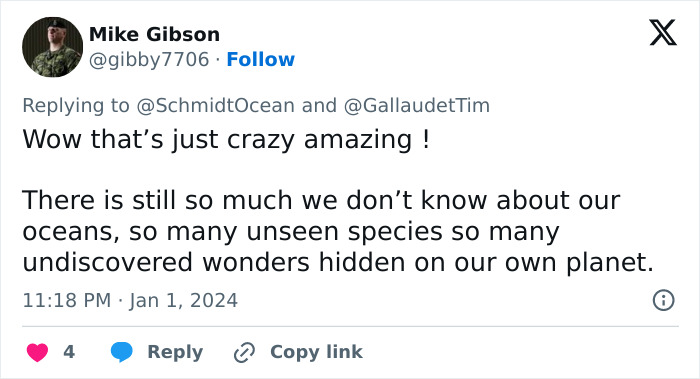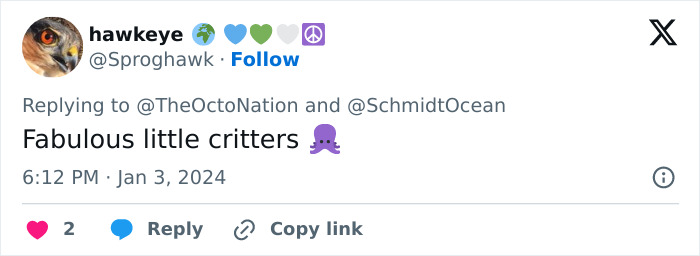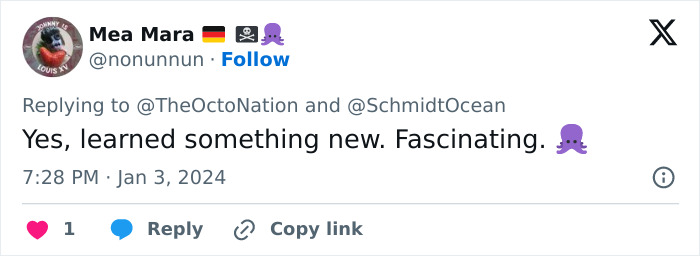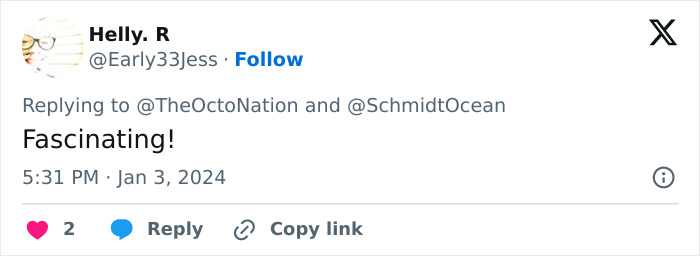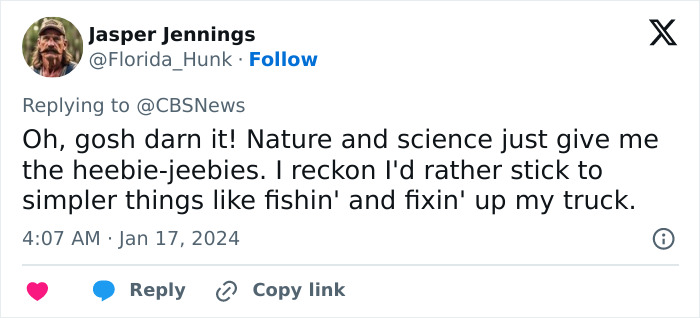Scientists found four new octopus species, unveiling new insights into deep-sea biodiversity and emphasizing the need for international collaboration in marine conservation. On Tuesday (January 16), the Schmidt Ocean Institute said that a team of scientists had made a groundbreaking discovery in the waters off Costa Rica.
So far, only one of the new species of deep-sea octopus has been named, CBS News reported.
Nevertheless, all four new species, found in a 100-square-mile-sized area near Costa Rica, are currently in the process of being given formal scientific interpretations.
The researchers have named one of the new species, the Dorado octopus, named for an outcrop of rock where it was found known as El Dorado Hill.
Scientists found four new octopus species, unveiling new insights into deep-sea biodiversity
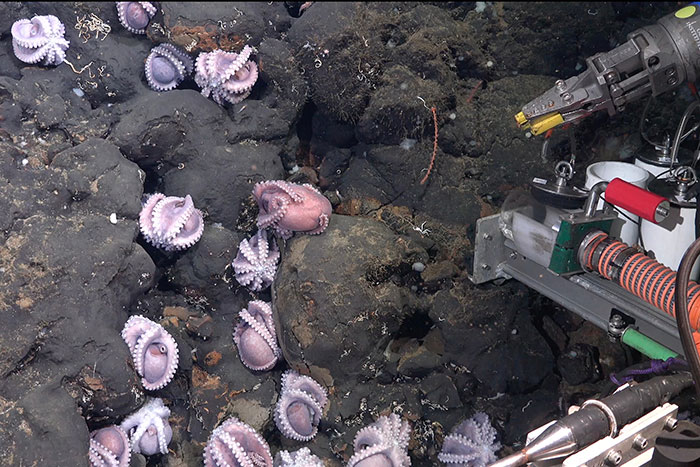
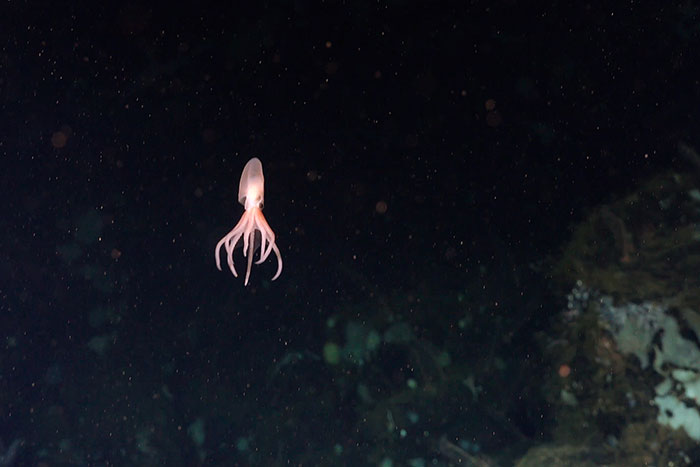
The dorado octopus is a new species of Muusoctopus, related to the pearl octopus, the scientist reportedly said.
According to CBS News, researchers discovered the octopus nursery off Costa Rica in 2013, but, at the time, scientists said they didn’t see any developing embryos, which led them to believe conditions there were not conducive to the birth of baby octopi.
Upon returning to the area, the scientists noticed octopi hatch – a discovery that changed the course of the initial research.
So far, only one of the new species of deep-sea octopus has been named, the “Dorado octopus”
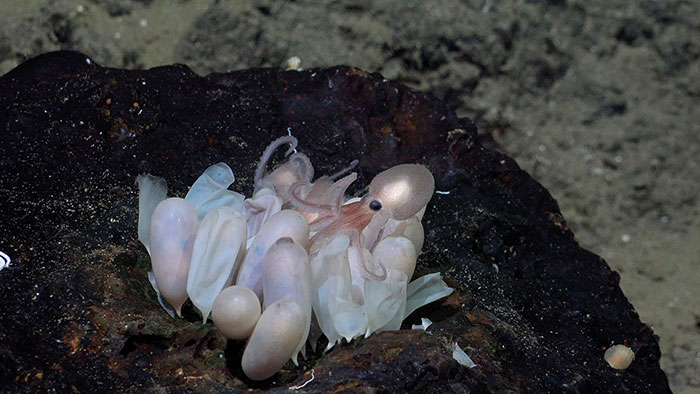
Last June, the team of scientists found two octopus nurseries and subsequently returned six months later to study the area further, according to the Schmidt Ocean Institute.
Dr. Beth Orcutt of the Bigelow Laboratory for Ocean Sciences said: “Through hard work, our team discovered new hydrothermal springs offshore Costa Rica and confirmed that they host nurseries of deep-sea octopus and unique biodiversity.”
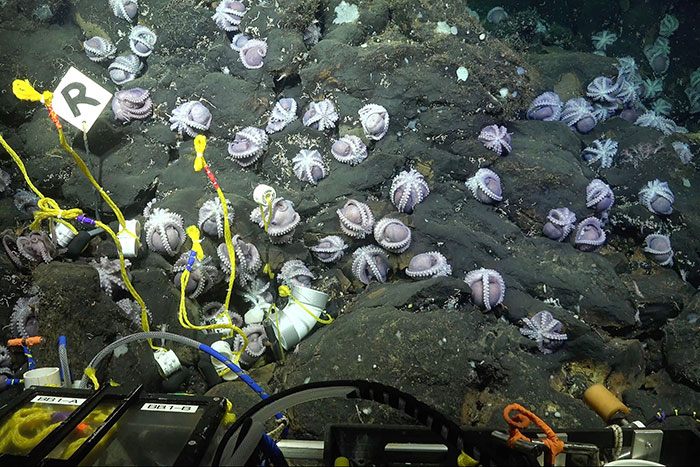
She further explained: “It was less than a decade ago that low-temperature hydrothermal venting was confirmed on ancient volcanoes away from mid-ocean ridges.
“These sites are significantly difficult to find since you cannot detect their signatures in the water column.”
The Dorado octopus was the only one of the newly discovered species that was seen brooding eggs at the area’s hydrothermal springs, as per CBS News.
Researchers discovered the octopus nursery off Costa Rica in 2013, but, at the time, scientists said they didn’t see any developing embryos
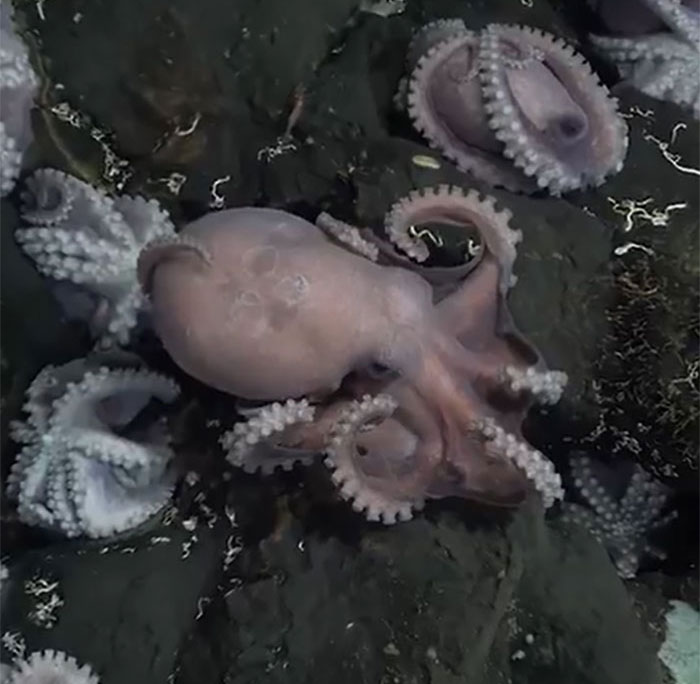
Brooding, the act of sitting on eggs to incubate them, can last several years for an octopus, researchers said.
Octopi often brood in warm waters to reduce the amount of time it takes for the eggs to hatch.
Between the June and December expeditions, researchers reportedly collected more than 310 deep-sea specimens, according to the Schmidt Ocean Institute. They’re now being archived at the Museum of Zoology at the University of Costa Rica.
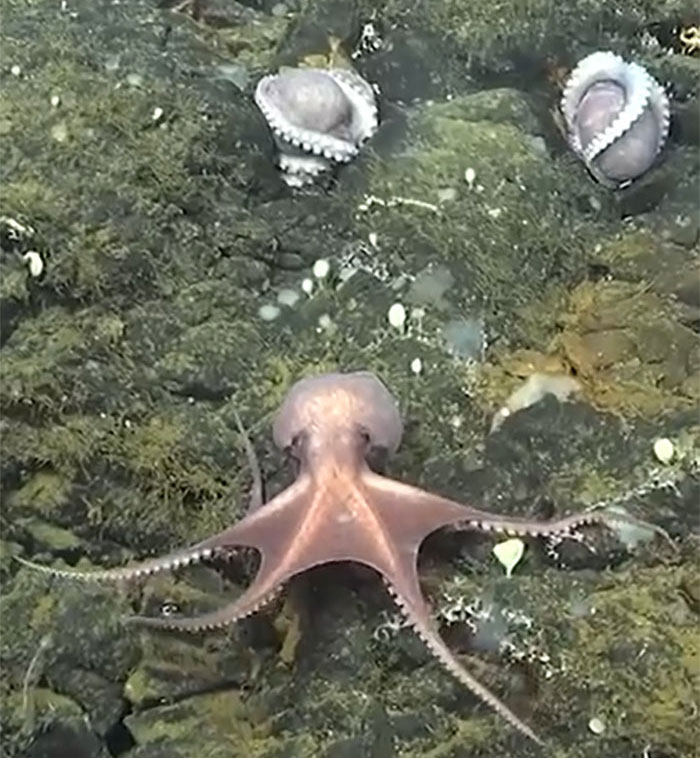
Samples are usually sent to the U.S. or Europe, but housing the specimens in Costa Rica will allow local scientists to study them, CBS News reported.
The research could help inform future policies to protect local waters, Dr. Jorge Cortés of the University of Costa Rica said. He continued: “I hope that the expedition serves as an inspiration for new generations.
“We need more international collaborations to advance knowledge of our deep-sea heritage.”
Schmidt Ocean Institute’s Executive Director, Dr. Jyotika Virmani, said in an official press release: “Schmidt Ocean Institute supports the global scientific community wherever Falkor (too) is operating.
Upon returning to the area, the scientists noticed octopi hatch – a discovery that changed the course of the initial research
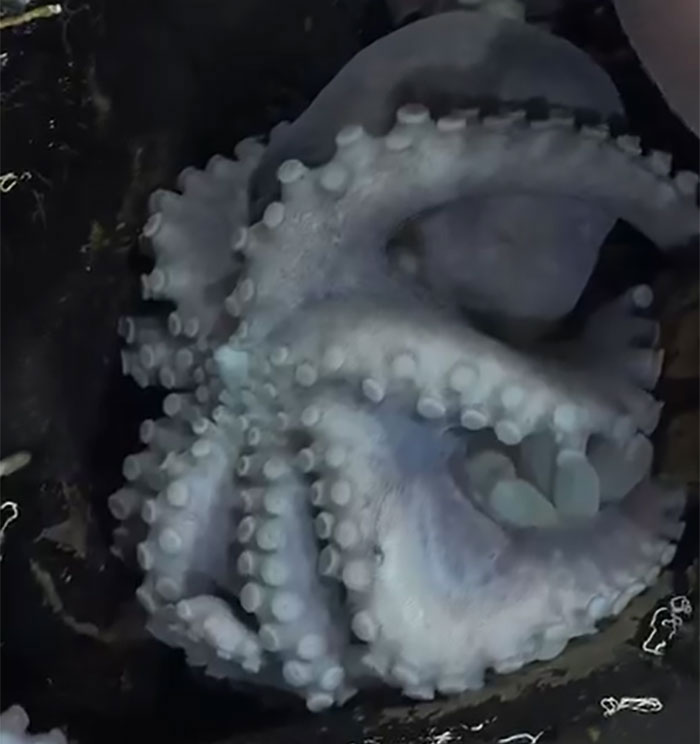
“Drs. Cortés and Orcutt formed a team that truly exemplifies international collaboration, which empowers scientists within Costa Rica and enriches local knowledge and understanding of the Ocean.
“In 2024, we will be operating in waters off Peru and Chile and look forward to welcoming scientists from South America on board.”
There are around 300 species of octopus worldwide, living in all of the world’s oceans.
Some readers thought the discovery was “fascinating” to watch

